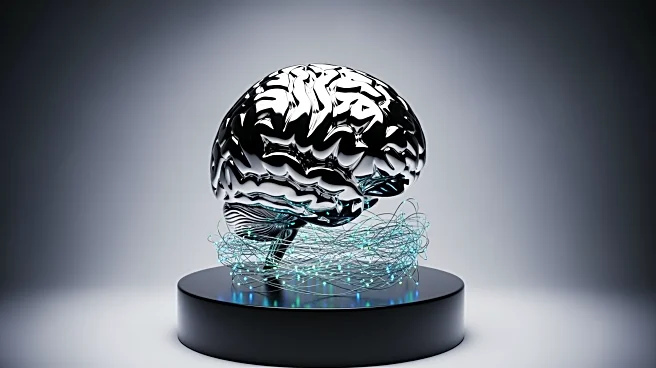What's Happening?
A recent opinion piece highlights the parallels between AI development and the cautionary tale of Frankenstein, emphasizing the importance of responsible stewardship in AI technology. The article discusses the inherent unpredictability of modern AI systems,
which are trained to predict plausible outcomes rather than verify truths, leading to potential 'hallucinations' or falsehoods. This issue is exemplified by recent legal cases where AI-generated citations were found to be fabrications. The piece argues for a regulatory framework similar to pharmaceuticals, involving prescribed training standards, pre-deployment testing, and continuous surveillance to ensure AI systems are safe and reliable.
Why It's Important?
The call for responsible stewardship in AI development is crucial as AI systems become increasingly integrated into high-stakes applications like legal research, medical advice, and financial management. Without proper oversight, AI systems may produce errors that could have significant consequences, such as corrupting legal records or spreading false medical advice. Implementing a regulatory framework akin to that used in pharmaceuticals could help mitigate these risks, ensuring AI systems are thoroughly tested and monitored for safety and efficacy. This approach could foster innovation while maintaining accountability, preventing the abandonment of powerful technologies that could otherwise lead to destructive outcomes.
Beyond the Headlines
The ethical implications of AI development are profound, as the technology's ability to project authority through confident prose can lead to misinformation and manipulation. The need for regulation is underscored by the potential for AI systems to fabricate facts, which could be scraped back into training data, perpetuating inaccuracies. The article suggests that graduated oversight, scaling requirements with demonstrated harm, could balance innovation with accountability. This approach would ensure that AI systems are continuously improved, preventing the kind of abandonment seen in the Frankenstein narrative, and promoting responsible development of synthetic intelligence.
















